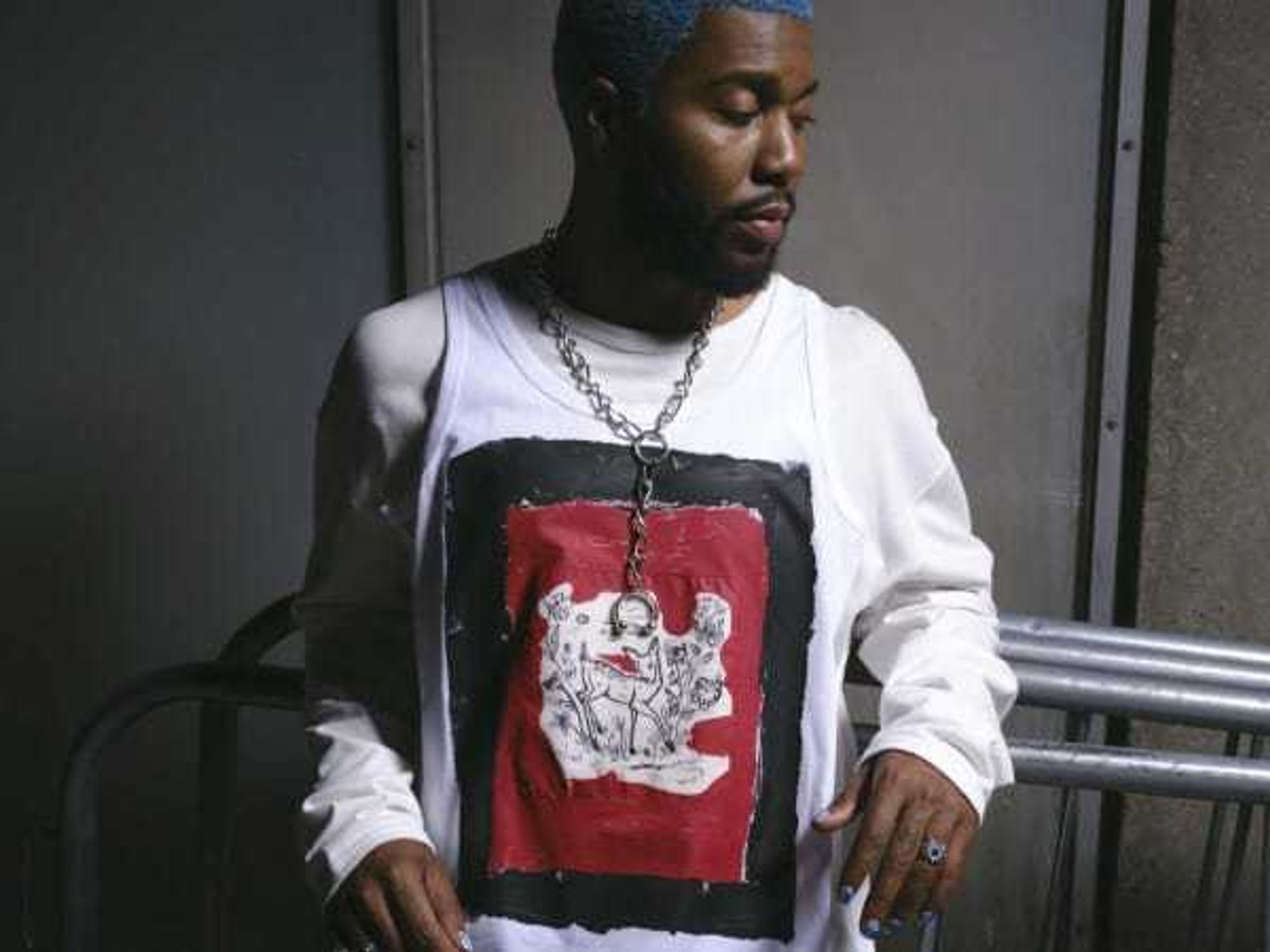Appreciation
Blake Edwards created movie magic with Inspector Clouseau, Holly Golightly & aperfect 10
 Audrey Hepburn in "Breakfast at Tiffany's"© Courtesy Everett Collection/Everett Collection
Audrey Hepburn in "Breakfast at Tiffany's"© Courtesy Everett Collection/Everett Collection Peter Sellers in "The Revenge of the Pink Panther"
Peter Sellers in "The Revenge of the Pink Panther" Dudley Moore and Bo Derek
Dudley Moore and Bo Derek Blake Edwards filming "The Tamarind Seed" in 1974
Blake Edwards filming "The Tamarind Seed" in 1974 Peter Sellers and Blake Edwards on a "Pink Panther" set
Peter Sellers and Blake Edwards on a "Pink Panther" set A still from "The Pink Panther Strikes Again"
A still from "The Pink Panther Strikes Again" Lee Remick in "Days of Wine and Roses," 1962
Lee Remick in "Days of Wine and Roses," 1962 Blake Edwards and long-time wife, Julie Andrews
Blake Edwards and long-time wife, Julie Andrews Blake Edwards
Blake Edwards Edwards demonstrates the proper technique for hurling a pie at Natalie Wood in"The Great Race."
Edwards demonstrates the proper technique for hurling a pie at Natalie Wood in"The Great Race." Filmmaker Blake Edwards holds up the honorary Oscar he received from the Boardof Governors of the Academy of Motion Picture Arts and Sciences during the 76thannual Academy Awards telecast Sunday, Feb. 29, 2004.Photo by Reed Saxon
Filmmaker Blake Edwards holds up the honorary Oscar he received from the Boardof Governors of the Academy of Motion Picture Arts and Sciences during the 76thannual Academy Awards telecast Sunday, Feb. 29, 2004.Photo by Reed Saxon
At the time of his death Wednesday evening at age 88, Blake Edwards, the Tulsa-born filmmaker who shrewdly balanced slapstick and sophistication throughout a Hollywood career spanning five decades, had at least three legitimate claims to pop-culture immortality.
For starters, it was Edwards, as director and co-screenwriter of The Pink Panther (1963) and A Shot in the Dark (1964), who helped create the imperturbably clueless Inspector Clouseau, one of the 20th century’s most iconic comic characters, and perfectly cast the role (after Peter Ustinov passed on the part) with one of cinema’s most inspired farceurs —Peter Sellers.
It could be persuasively argued, of course, that Edwards and Sellers – never the most amiable of collaborators – upheld the law of diminishing returns in a series of wildly uneven sequels (including one, 1982’s notorious Trail of the Pink Panther, that was comprised mostly of outtakes from earlier films two years after Seller’s death). But never mind; many madcap sequences of Clouseau’s swaggering klutziness are among the most hilarious moments ever to delight movie audiences.
Every bit as amusing — and, for guys of a certain age, more highly charged with rude shocks of recognition — is the middle-aged craziness displayed by Dudley Moore in 10, Edwards’ classic 1979 farce about a pop music composer who, on the occasion of his 42nd birthday, impulsively pursues an absolutely stunning young stranger (Bo Derek at her drop-dead sexiest) while neglecting his attractive, age-appropriate lover (Julie Andrews, Edwards’ wife and frequent collaborator).
Deftly displaying a slapstick prowess equal to that of Sellers at his most uninhibited, Moore makes you laugh so hard, it sometimes hurts. At the same time, though, Moore — with much help from Edwards, of course — infuses his character’s heedless rush toward an elusive object of desire with discomforting suggestions of not-so-quiet desperation. Which, in a way, also hurts.
There’s wistful romantic longing of an appreciably more poignant sort in what many movie buffs treasure as their all-time favorite Edwards film, Breakfast at Tiffany’s, the enduringly popular 1961 romantic comedy taken from George Axelrod’s screenplay adaptation of Truman Capote’s novella. Mind you, we’re not talking about an entirely faithful adaptation — certain seamier aspects of Capote’s story had to be toned down or tidied up — but even literary purists have found it hard to resist the captivating spell of Audrey Hepburn’s Holly Golightly, the small-town girl who finances her upward mobility in Manhattan with generous “tips” from appreciative men.
Indeed, I strongly suspect that this movie, more than any other she ever made, made more men (and women) fall hopelessly, helplessly in love with Hepburn during the ’60s and beyond. (I confess to feeling exalted when, at a Sarasota Film Festival in the ‘90s, she graced me with a smile and whispered “Thank you!” when I lit her cigarette during an outdoor reception.) And for that, Edwards deserves considerable credit for enabling and encouraging her to cast that spell.
There are several other movies to admire in Edwards’s extensive oeuvre, including two first-rate 1962 dramas — Experiment in Terror (1962), a splendidly creepy stalker thriller, and Days of Wine and Roses, a potent drama about alcoholism that forced Edwards to face up to his own drinking problem — and the seriously funny, criminally under-rated Skin Deep (1989), which audaciously wrings laughs from a darkly comical appreciation of the links between alcohol and sexual addiction.
If I were totaling up a list of personal faves, I would include all three, along with a couple of well-crafted popcorn flicks — The Tamarind Seed (1974), a neat mix of middle-age romance and espionage thriller; The Carey Treatment (1972), a jaunty James Coburn star vehicle; and Victor/Victoria (1982), the elegantly naughty sex comedy that Edwards later adapted into a successful Broadway musical with input from Henry Mancini, the same composer who greatly enhanced Breakfast at Tiffany’s with the deliciously dreamy “Moon River,” and provided the propulsively jazzy theme for one of Edwards’ early TV efforts, the private-eye series Peter Gunn. (Not incidentally, Mancini also wrote the Pink Panther theme.)
But when it comes to credits most likely to fulfill every artist’s dream of cheating death, well, Blake Edwards may be gone, but his collaborations with Sellers, Moore and Hepburn ensure that he, like those faded stars, won’t be forgotten.
